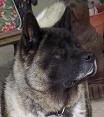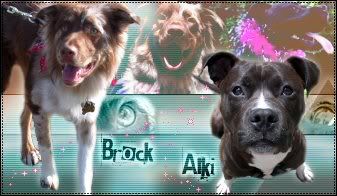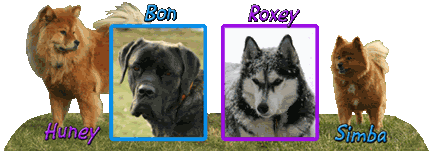Everyday after work, Seven and I meet up with about 17 other people and their dogs at the dog park. Things are calm for the most part and the dogs (and owners) socialize for about 3 hours. Nice way to wind down from a long day at work.
Every once in a while, a new 'couple' shows up and everyone is really friendly and inviting. We make sure the dogs don't overwhelmed the new dog and things are usually great.
Well, yesterday we had someone show up who's dog kept peeing on PEOPLE and the owner thought it was cute. It wasn't and I said something to him about it and he just laughed it off as "that's how dogs are." Um.. no, that's how UNTRAINED dogs are, especially when the owner laughs and thinks it's cute.
Well, he peed on one woman who was there with her daughter and the woman started SCREAMING at this guy and his dog and his dog started growling. Not good at all. Her dog and and this guy's dog started fighting and then Hannah, the 100+ lb Rottie got in the middle to break it up and the dog bit her and then things got REALLY ugly.
I've never seen a Rotweiler lose its cool. It wasn't pretty at all and man I am so glad her owner has her trained. She stopped on command.
The guy finally leaves and takes his dog with him and the woman with the black poodle shows up with all of the dogs already on edge and her dog starts attacking DJ, the shepherd/lab mix and Sarah, who has two dogs at the park asked the woman to get her dog on a leash (this is the dog that had attacked dogs at the park before). Well, the woman started in with the "It's a free country..." and Sara lost it.
These two were yelling at each other and then Sara's dogs came over to protect her. Seven and I were watching the whole thing and when the poodle hurt Aurora (Sara's older dog) Seven went charging at the poodle and wrestled it to the ground and pinned it.
I went over and got Seven and tried to get her dog on a leash so the woman could at least restrain her dog.
Stupid (looking back I realize this now but I wanted all of the fighting to stop) because her dog bit the crap out of me which made Seven jump on her dog again and I finally got him to heel and stand with me as she got her dog.
This woman refused to believe that her dog was aggressive and wouldn't leave and when her poodle made gestures like it was going to come at me, I told her point blank that if she didn't love her dog that much, she'd let him do it. Her dog already bit me and drew blood and if it comes near me again, I won't stop Seven this time.
All of the dogs were so wired up at this point. All were barking and circling. Everyone was getting anxious and finally the woman with the dog left. In the past, I've offered to meet her at the other, smaller park so her dog could get socialized in a smaller group because I know 17-20 dogs in one place can be overwhelming, but she refused to believe that HER dog could do any wrong.
I will never understand that. I love Sev to death and he's the joy in my life, but even I know he's not perfect and messes up at times.
I've been getting email all morning asking me if I'm coming to the park today. Luckily, the dog had his shots (up to date) and the doctor gave me a clean bill of health. I only got a few stitches, but I am so irritated right now.
I don't understand the logic of taking untrained or unsocialized dogs to a park and letting them off of the leash.







 Reply With Quote
Reply With Quote







 I guess he is OK, but just got scared by the other dog. Or maybe he was unhappy the husky showed some kind of dominance over him.
I guess he is OK, but just got scared by the other dog. Or maybe he was unhappy the husky showed some kind of dominance over him. 





Bookmarks